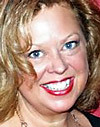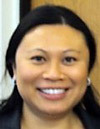Originally published Monday, May 3, 2010 at 3:31 PM
![]() Comments (0)
Comments (0)
![]() E-mail article
E-mail article
![]() Print
Print
![]() Share
Share
Guest columnist
Adult-family-home industry supports reasonable improvements to safety regulations
The Washington Department of Social and Health Services is proposing more regulations for the adult-family-home industry. Guest columnists Hope C. Reffett and Cindi Laws say the industry wants bad actors shut down but not by creating unreasonable burdens for reputable operators.
Special to The Times
IT is said a society can be judged based on how it treats its most-vulnerable members. In our state, adult-family homes have long been a vital part of our long-term care system. They allow individuals to live in the community, near their families, in a homelike setting, rather than in an institution. They reduce costs to families and taxpayers by keeping vulnerable adults out of nursing homes.
For hundreds of thousands of residents and their families over the years, they have been the right choice to care for senior citizens and those with disabilities.
But this year we have learned the system is far from perfect. A series of disturbing Seattle Times stories — "Seniors for sale" — have highlighted the failings of some adult-family-home operators and of the state Department of Social and Health Services (DSHS). Those of us who represent operators are very concerned about the issues these stories raised, but we are equally concerned about an overreaction that could destroy adult-family homes as we know them.
In order to open an adult-family home, a provider must undergo weeks of training in the basics of operation, including fire and life safety, communications skills, infection control, business practices and residents' rights. Caregivers must go through basic training before being allowed contact with residents.
Both operators and caregivers must undergo criminal-background checks, first aid and CPR training every two years, and obtain a food-handler permit every year. Caregivers who take care of residents with special needs must get specialized training in the areas of dementia, mental health and developmental disabilities.
Operators and caregivers — most of whom have a nursing background — are required to undergo at least 10 hours of continuing education every year. All training is paid by the providers and caregivers, not taxpayers. We have supported increased training and required it be completed before an adult-family home is licensed.
Adult-family homes are inspected by DSHS every 12 to 18 months, and subject to oversight by the Long Term Care Ombudsman Program. If a violation is found, homes are rechecked for compliance. Adult-family homes are the subject of more than 40 separate sections of state law, and 258 individual state administrative codes; that's more than 350 pages of state rules and regulations.
DSHS is now proposing more regulations and a 1,400-percent increase in licensing fees. We will review these proposals with an open mind. We are eager to work with the governor, the ombudsman and DSHS to ensure that we achieve the ultimate goal of safe, responsible care of those living in our homes. We understand that licensing fees will need to be increased but we want that increase to be reasonable. Those of us who operate adult-family homes love what we do. We, more than anyone, want bad actors identified and shut down.
Citizens need to understand that there are currently rules and regulations in place to protect residents, should DSHS enforce the recommendations of their inspectors. Massive new taxes and unreasonable new regulations won't affect rogue operators, but they will put honest operators out of business and force more of our most-vulnerable residents into nursing homes.
Adult-family homes are a valuable resource. Let's move forward to make a good system even better; but let's do so thoughtfully, with caution and consideration, to avoid doing more harm than good.
Hope C. Reffett, left, of Vancouver is the newly elected chair of the Washington State Residential Care Council of Adult Family Homes (WSRCC) and owner of Esperanza Adult Care Home, LLC. Cindi Laws of Seattle is WSRCC's new executive director.NEW - 5:04 PM
A Florida U.S. Senate candidate and crimes against writing
NEW - 5:05 PM
Guest columnist: Washington Legislature is closing budget gap with student debt
Guest columnist: Seattle Public Schools must do more than replace the chief
Leonard Pitts Jr. / Syndicated columnist: The peril of lower standards in the 'new journalism'
Neal Peirce / Syndicated columnist: How do states afford needed investment and budget cuts?

Entertainment | Top Video | World | Offbeat Video | Sci-Tech
general classifieds
Garage & estate salesFurniture & home furnishings
Electronics
just listed
More listings
POST A FREE LISTING




